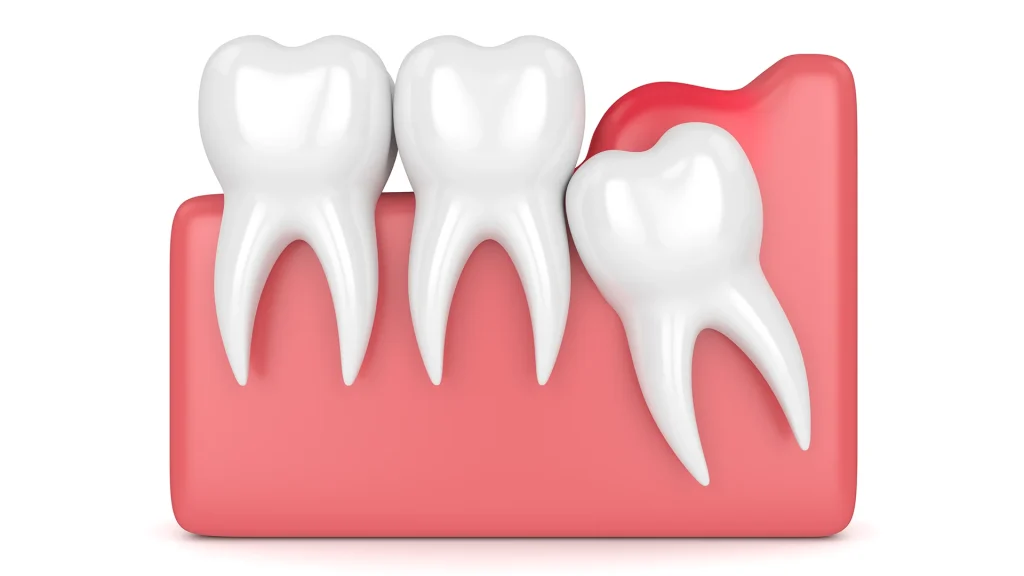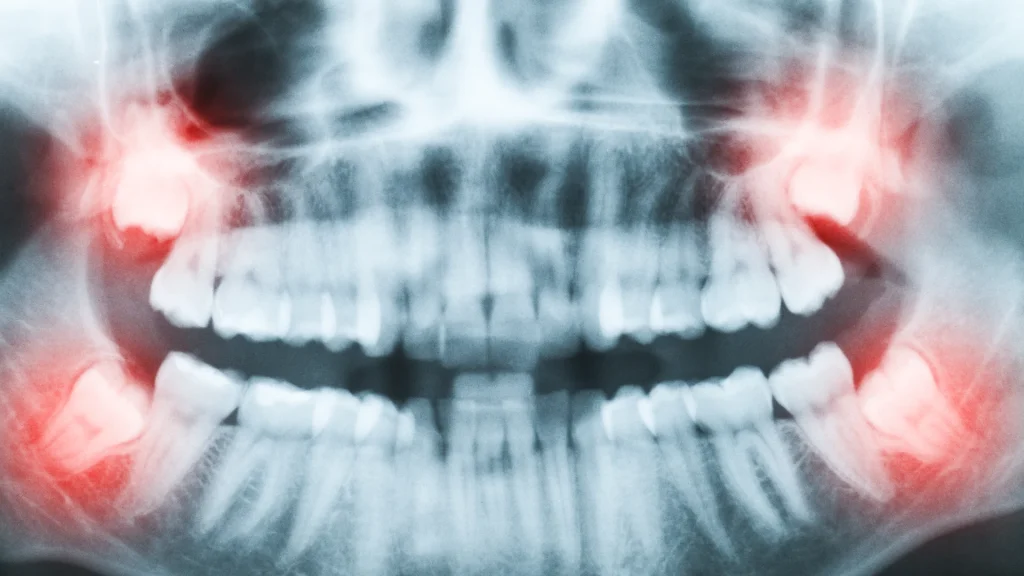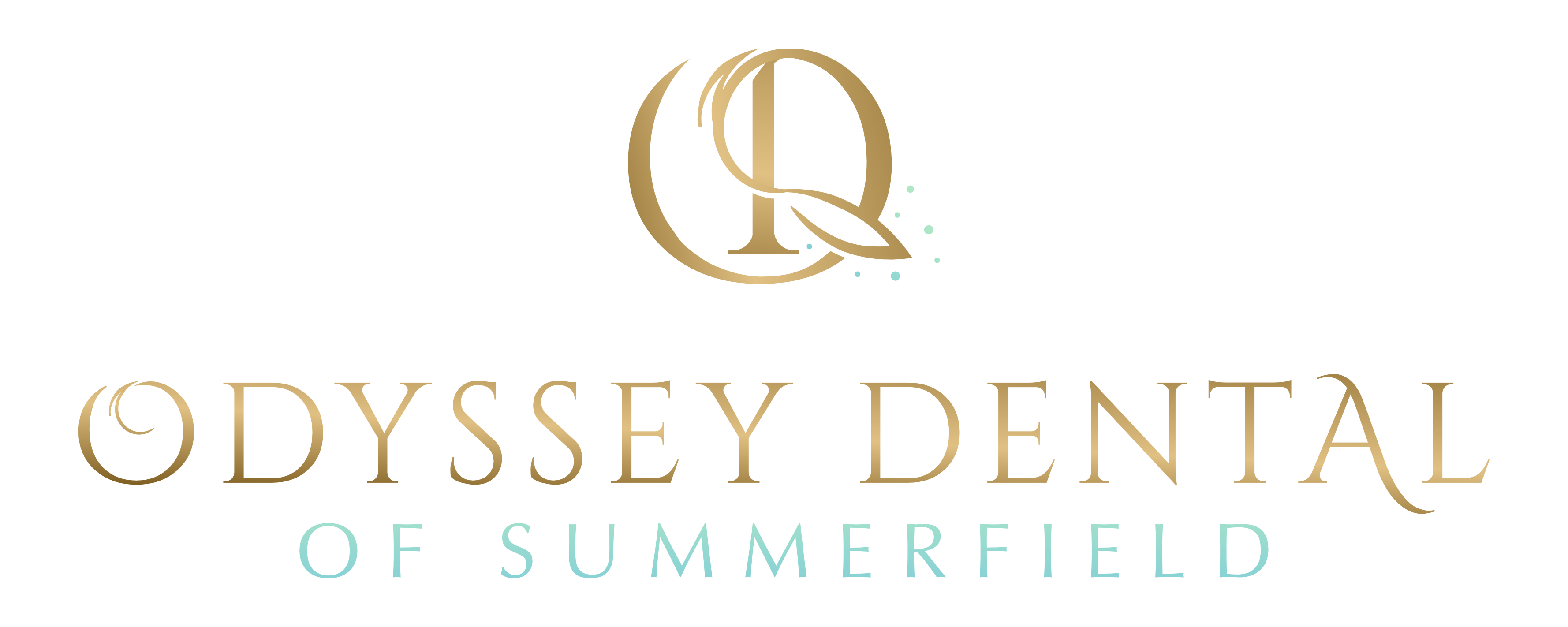Wisdom teeth, also known as third molars, are the last set of adult teeth to grow in. They normally emerge in your late teens or early twenties, typically between the ages of 17 and 25. They are the last teeth that break through your gums at the extreme back of your mouth.

While these teeth were once essential for our ancestors who had much tougher lives and tougher diets, our modern lives and improved dental care have actually rendered them somewhat redundant. As a result, sometimes there’s just not enough space in our mouths to allow them to emerge properly.
As a dentist who’s dedicated to creating healthy smiles, addressing pain, and ensuring your comfort, I thought we’d look at the potential causes of wisdom tooth aches, some effective natural remedies to help ease your discomfort, and the steps you may have to take to address the pain permanently.
Causes of Wisdom Tooth Pain

The emergence of wisdom teeth can lead to a host of issues, with pain being a common symptom:
- Inflammation – The process of wisdom teeth erupting can cause inflammation and tenderness in the surrounding gums and teeth. The pain and discomfort is a bit like teething for a baby. Swollen and sore gums and surrounding teeth, or sometimes a dull jaw or head ache.
- Impaction – If there isn’t enough space for your wisdom teeth to come in properly, or if they are in an abnormal position, they can become trapped within your jawbone or gums. These impacted wisdom teeth can cause quite a bit of swelling, intense pain when you’re chewing, and sometimes swelling of your entire jaw. Wisdom tooth impaction can also cause a pretty bad headache that just won’t go away.
- Infections – Partially erupted wisdom teeth can create pockets where food and bacteria get trapped, leading to infections. Pericoronitis is just the word dentists use specifically for infection of the gum tissue surrounding those third molars. Infection is more commonly seen surrounding the mandibular teeth (lower) than the maxillary (upper) teeth.
If you’re older, and you weathered the emergence of your wisdom teeth already – perhaps even years ago – wisdom tooth aches can also arise for other common toothache reasons such as having a cavity, gum disease, or even an abscess.
Natural Relief Cures at Home
If you’re experiencing wisdom tooth eruption soreness and swelling, you can try alleviating the discomfort with a few of these natural cures right at home. If all goes well, your wisdom teeth come in and you’re good to go (though you should definitely take extra care brushing and flossing as those tight spaces can increase your risk of decay). Ultimately, however, if you’re experiencing continued pain with no eruption or your wisdom teeth already erupted and the pain is new, the only solution for alleviating the pain is to see a dentist and possible have your wisdom teeth removed.
Several natural cures are available in the meantime to help gain some relief from the pain of wisdom teeth:
Salt Water Rinse
The most popular home remedy for any tooth pain is a saltwater rinse. Washing your gums with sodium chloride dissolved in warm water will destroy harmful bacteria and promote healthy gums. Sometimes your wisdom teeth also hurt other teeth and develop cysts when they erupt through the gums. So, keeping your mouth clean from harmful bacteria is the best way to avoid further pain. You’ll want to dissolve about 2 teaspoons of table salt in about 8 ounces of warm water, swish gently, and then spit it out.
Cold Compress
Applying a cold compress to the outside of your cheek / jaw can help reduce swelling, which works to alleviate some of the pain. Be sure to wrap a towel around your ice pack and hold it against the area of about 15 minutes. Then remove it for 20 minutes. Repeating that a few times a day can help since the ice pack also has a bit of a numbing effect. Don’t have an icepack or cold compress handy? Try an unopened bag of frozen corn or peas wrapped in your towel, it works great.
Heat Therapy
It sounds like I’m contradicting myself, but while cold can help relieve pain by reducing inflammation and swelling, sometimes a gentle heat can help by relieving tension and increasing the blood flow. Again, apply a warm compress for several minutes at a time with breaks in between. You can also try alternating hot and cold treatments a few times a day.
Peppermint Oil
Peppermint oil contains natural analgesic, anti-inflammatory, and antimicrobial properties. While it may help ease some of the discomfort, it’s essential to use it safely. Pure peppermint oil is potent and can be quite irritating to the skin and gums if used undiluted. Either mix a few drops of peppermint oil with a carrier oil (like coconut or olive oil) in a 1 drop to 1 teaspoon ratio. If you use the diluted essential oil method, make sure you don’t swallow it. You can also try a cotton ball dipped into peppermint extract directly applied, or a cooled peppermint tea for a rinse.
Aloe Vera
Aloe vera is rich in antioxidants and has anti-inflammatory properties. As such, aloe vera gel can be used to relieve and minimize inflammation around where your wisdom tooth is growing in. It also assists in healing the gums if they become cut or scratched during eruption. Opt for pure aloe (from a plant) or an aloe vera-based oral gel specifically designed for pain relief. Wash your hands thoroughly before handling the gel and apply gently using your fingertip or a clean cotton swab. Avoid swallowing the gel, spit it out.
Turmeric
Traditionally, turmeric has been used as a natural cure for stomach pain, wounds, and more. The anti-inflammatory and analgesic properties of turmeric provide its potential as a tooth pain remedy. One study finds that as a mouth rinse (boiling 5 grams of turmeric powder with two cloves and two dried guava leaves in 200 grams of water) will reduce inflammation and on painful teeth, massaging roasted, ground turmeric can also relieve pain and swelling. Create a paste by mixing some turmeric powder with just enough water to form a paste thick enough to adhere to the affected area. Apply the paste with a clean cotton swab or fingertip and gently massage it into the gums and painful area. Let it sit for a few minutes, then rinse thoroughly. Again, don’t swallow the paste, rinse it out.
Permanent Wisdom Tooth Pain Relief
Remember that home remedies and natural cures can only provide temporary relief from wisdom tooth pain. If it helps you get through your wisdom tooth eruption and the pain disappears, that’s great. But none of these remedies are meant as a substitute for a dentist’s evaluation and potential extraction if necessary. It really is crucial to address the underlying cause of the pain and to do that, you’ll need to consult a dentist for x-rays and evaluation.
In some cases (impaction, infections, or recurring pain), your dentist may recommend extraction. This procedure is often the most effective way to permanently alleviate the pain and prevent future issues. Of course it depends on your specific case.
Sound scary? It doesn’t have to be. We do everything we can to make your experience at our office as stress-free as possible. And I specialize in sedation dentistry, so we have a variety of options to help you conquer your fears and find a permanent solution to your wisdom tooth woes.
If you’re experiencing severe or persistent wisdom tooth pain, please reach out for a comprehensive assessment and appropriate treatment options.
If your pain is unbearable, Call Us: 336.560.3636!

